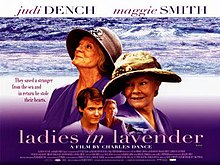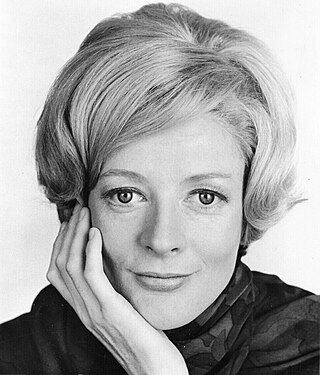
Dame Margaret Natalie Smith was a British actress known for her wit in both comedic and dramatic roles. She had an extensive career on stage and screen for over seven decades and was one of Britain's most recognisable and prolific actresses. She received numerous accolades, including two Academy Awards, five BAFTA Awards, four Emmy Awards, three Golden Globe Awards and a Tony Award, as well as nominations for six Olivier Awards. Smith is one of the few performers to earn the Triple Crown of Acting.

Dame Judith Olivia Dench is a British actress. Widely considered one of Britain's greatest actors, she is noted for her versatility, having appeared in films and television programmes encompassing several genres, as well as for her numerous roles on the stage. Dench has garnered various accolades throughout a career that spanned seven decades, including an Academy Award, a Tony Award, two Golden Globe Awards, four British Academy Television Awards, six British Academy Film Awards, and seven Olivier Awards.
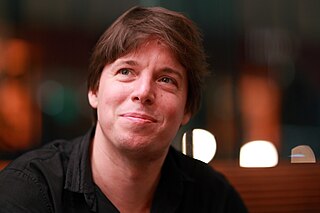
Joshua David Bell is an American violinist and conductor. He is currently music director of the Academy of St Martin in the Fields.

Miriam Margolyes is a British and Australian actress. Known for her work as a character actor across film, television, and stage, she received the BAFTA for Best Supporting Actress for her role as Mrs. Mingott in Martin Scorsese's The Age of Innocence (1993), and achieved international prominence with her portrayal of Professor Sprout in the Harry Potter film series (2001–2011). Margolyes was appointed Officer of the Order of the British Empire (OBE) in the 2002 New Year Honours for Services to Drama.
The Evening Standard Theatre Awards, established in 1955, are the oldest theatrical awards ceremony in the United Kingdom. They are presented annually for outstanding achievements in London Theatre, and are organised by the Evening Standard newspaper. They are the West End's equivalent to Broadway's Drama Desk Awards.
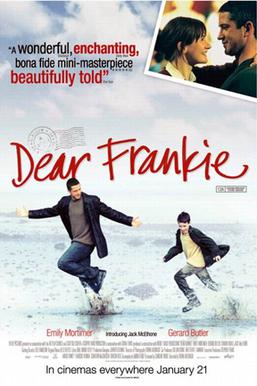
Dear Frankie is a 2004 British drama film directed by Shona Auerbach and starring Emily Mortimer, Gerard Butler, Jack McElhone, and Sharon Small. The screenplay by Andrea Gibb focuses on a young single mother whose love for her son prompts her to perpetuate a deception designed to protect him from the truth about his father.
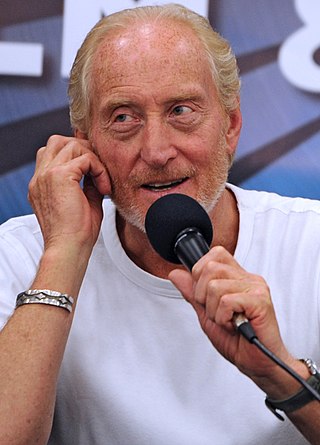
Walter Charles Dance is an English actor. He is known for playing strict, authoritarian characters and villains. Dance started his career on stage with the Royal Shakespeare Company (RSC) before appearing in film and television. For his services to drama he was appointed an Officer of the Order of the British Empire (OBE) by Queen Elizabeth II in 2006.

Daniel César Martín Brühl González is a German-Spanish actor. He has received various accolades, including three European Film Awards and three German Film Awards, along with nominations for two Golden Globe Awards and a BAFTA Award. He received his first German Film Award for Best Actor for his roles in Das Weisse Rauschen (2001), Nichts Bereuen (2001), and Vaya con Dios (2002). His starring role in the German film Good Bye, Lenin! (2003) received widespread recognition and critical acclaim, and garnered him the European Film Award for Best Actor and another German Film Award for Best Actor.

Wyndham's Theatre is a West End theatre, one of two opened by actor/manager Charles Wyndham. Located on Charing Cross Road in the City of Westminster, it was designed c. 1898 by W. G. R. Sprague, the architect of six other London theatres between then and 1916. It was designed to seat 759 patrons on three levels; later refurbishment increased this to four seating levels. The theatre was Grade II* listed by English Heritage in September 1960.

Prussia Cove, formerly called King's Cove, is a small private estate on the coast of Mount's Bay and to the east of Cudden Point, west Cornwall, England, United Kingdom.
The 25th London Film Critics Circle Awards, honouring the best in film for 2004, were announced by the London Film Critics Circle on 9 February 2005.
Nigel John Hess is a British composer, best known for his television, theatre and film soundtracks, including the theme tunes to Campion, Maigret, Wycliffe, Dangerfield, Hetty Wainthropp Investigates, Badger and Ladies in Lavender.
Each year since 1988 The Critics' Circle has presented an award for Distinguished Service to the Arts, voted for by all members of the Circle, embracing Dance, Drama, Film, Music, Visual Arts and Architecture. This performing arts Award takes the form of an engraved crystal rose bowl, presented at a celebratory luncheon.
This is a list of events related to British television in 1934.
Ikuko Tani is a Japanese actress, voice actress and narrator from Tokyo Prefecture. She is best known for her roles in Tanoshii Moomin Ikka, SpongeBob SquarePants and the Japanese dubs of the Harry Potter films.
Paul Trijbits is a Dutch-born film and television producer living in London, with his wife Patricia and children Jakob and Lea.
Ladies in Lavender is a stage play in two acts by Shaun McKenna. It was adapted from Charles Dance’s screenplay for his 2004 film Ladies in Lavender, which was itself based on a 1908 short story by William J. Locke.
The 15th British Independent Film Awards, held on 9 December 2012 at the Old Billingsgate Market in central London, honoured the best British independent films of 2012.
Elizabeth Karlsen is an American–British film producer. Her career has spanned over three and a half decades, and In 2019, she was awarded the BAFTA award for Outstanding British Contribution to Cinema. Her work has garnered a total of 52 BAFTA nominations and wins, and 20 Academy Award® nominations and wins. In 2002, she co-founded Number 9 Films with production partner and husband, Stephen Woolley.

Angelina Ballerina is a British animated preschool children's television series based on the Angelina Ballerina series of children's books by author Katharine Holabird and illustrator Helen Craig. The series is about a young mouse named Angelina Mouseling who loves dancing ballet, her family, and her classmates. Finty Williams performed the voice of Angelina and her mother Judi Dench performed the voice of Miss Lilly.
